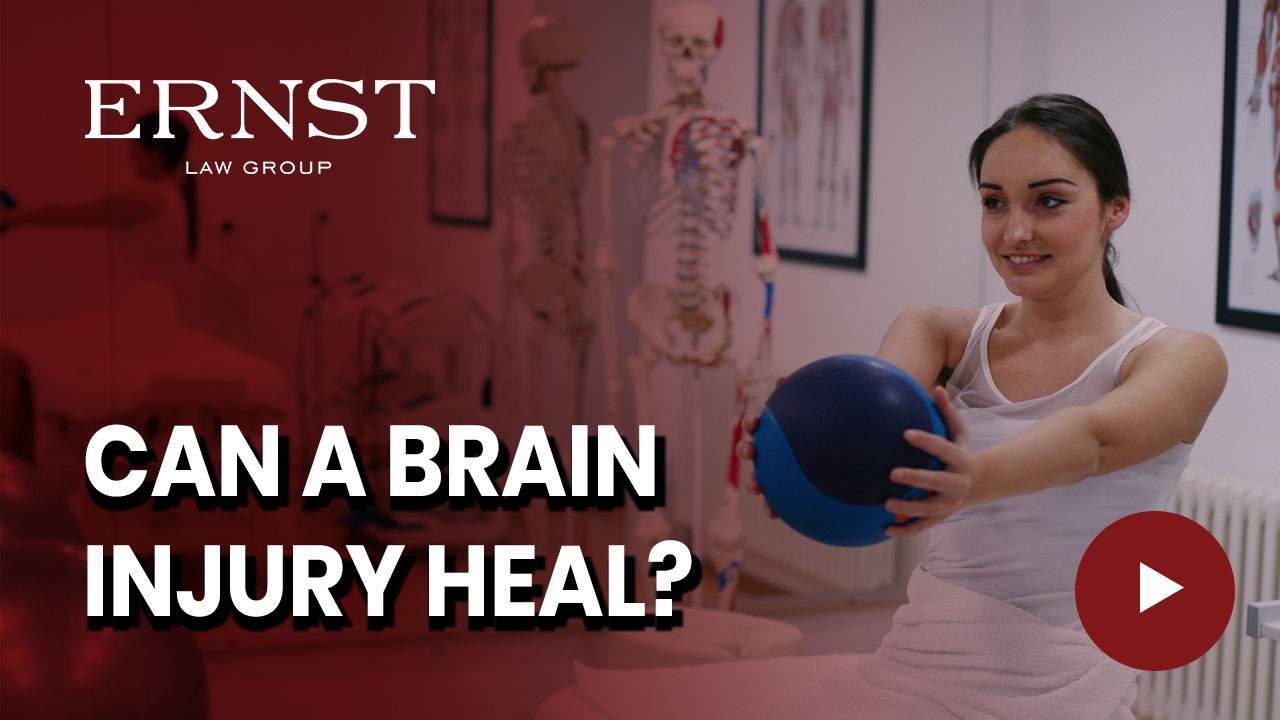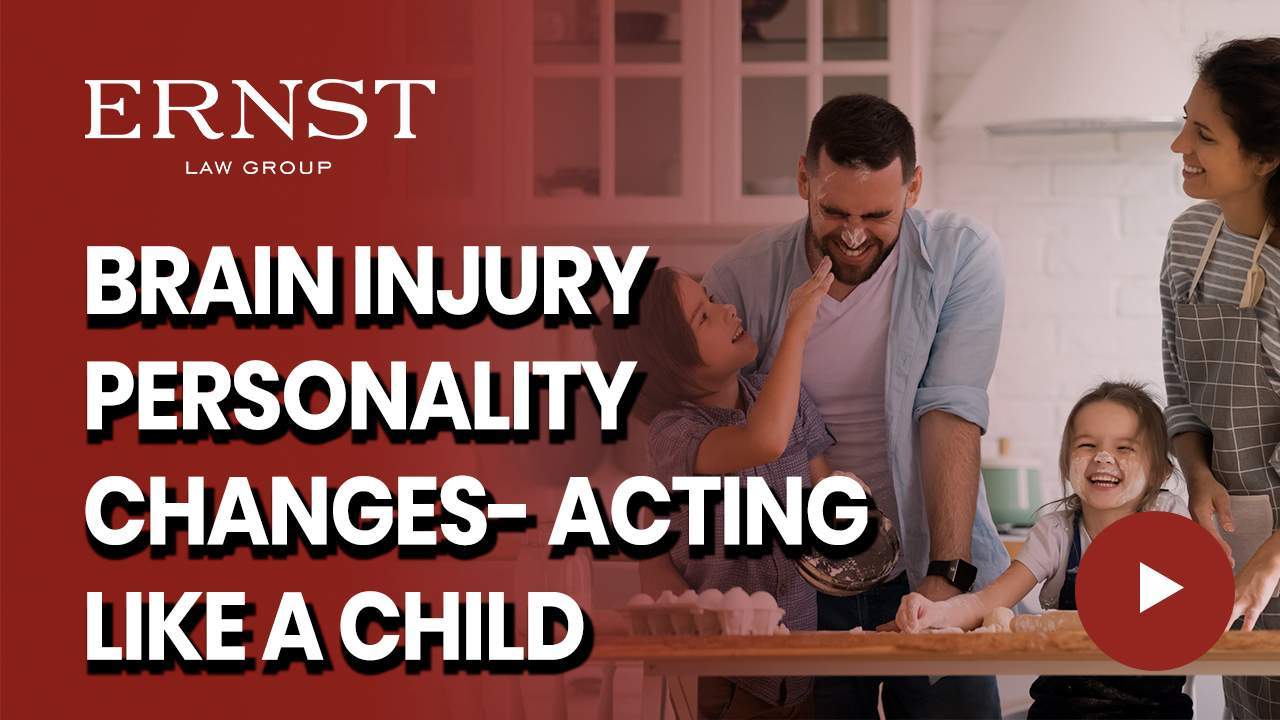Transcript:
When someone suffers from a traumatic brain injury, there’s three things they often really go through often. They’re anger, anxiety, and depression. And there’s a whole lot of reasons those end up being some of the stuff that traumatic brain injury victims go through, but I wanted to give you quick, straight to the point ways you can help try and lessen the anxiety, the anger, and the depression that often results from a traumatic brain injury. So let’s get right into it.
First off, depression. Their situation’s changed, and some of the cognitive tasks they could do, some of the physical tasks, some of the social tasks that they could do, all of a sudden they’re not able to really do as well anymore. And that change in their lifestyle and who they were and who they are now causes a lot of emotional issues to derive. They’re trying to grapple with their new sense of self.
So how can you help with that? First off, there’s three main things that I would say are like legs to a stool that can really contribute to trying to minimize these effects. First off is social support. Social support, checking in with them, asking what you might be able to do to help. And sometimes asking what can you do to help is not as effective as just doing something to help. If they’re having issues with hearing where loud noises are bothering them all the time, just providing a pair of earplugs. Or if they’re having issues with sensitivity to light, bringing a dark pair of sunglasses when you go somewhere, always. You have this pair of sunglasses that’s dark, and then when they start saying, “Hey, these lights are bothering me,” you’ve got the sunglasses right there.
You don’t necessarily need to rely on the person who suffered the traumatic brain injury to remember all these things. It’s the social support that helps minimize some of that day to day impact that can really give rise to trying to lessen some of the difficulties they’re going through. If they’ve got light and sound sensitivity, having things that minimize that will obviously affect the anger, some of the emotional things that they’re going through, to a great extent.
The next thing other than social support is having some type of emotional support or outlet. Sometimes it can be art. Sometimes it can be journaling. Sometimes it can be even sticky notes. It can be as simple as that. Or some way that they can put their feelings down or talk to somebody about it. Sometimes it can be therapy in the professional context, but if you don’t have enough money for therapy or you don’t have a way to get money for therapy, some of the other ways to do it are having someone to talk to in a non-judgemental environment. Sometimes family members and friends can be great for that other times, not so much.
The last one is friends. Friends after you’ve had a traumatic brain injury are an interesting situation, and I actually may do a whole video on that, but really what it is is friendships after you suffered traumatic brain injury sometimes change. Sometimes people you were friends with, you stopped being friends with, and sometimes people with traumatic brain injury over a period of two to four years will develop a whole new set of friends. And it’s something that should be actively encouraged, and it should be encouraged with the way the person is now, as who they were before.
Sometimes people who are shy and passive will become more outgoing, or sometimes someone who’s very more outgoing and they were always out in the life of the party, all of a sudden really wants to be inside and watch TV and not be out much. That is normal for someone to have that type of change, and it needs to be supported in a way where the friends can understand the new person that they are becoming.
They always say friendships are either getting better or getting worse. That’s it. And so when it comes to someone who’s got a traumatic brain injury, it needs to be acknowledged. And having friends, even if they aren’t as close anymore, having them be there for that person to either communicate or say, “Hey, what are some things we might be able to do with you?” Those three things can really alleviate some of the problems that grow out of that. The anger, the depression, some of the fear that goes with some of the personality changes, having a good group for emotional support, social support and friendships can really help alter that course. And so it’s something that I would highly recommend that…
What are the specific things you can do to encourage that? Put the person who is the victim of the traumatic brain injury in a place once every two weeks, once a week, where they can help build some of those connections on their own, or be forced into ways that they build those connections. Traumatic brain injury support groups are great. People talking about their own experiences make people feel like they’re not the same. They aren’t alone going through these experiences. There’s groups on Facebook that do it. There’s blogs of people going through it. There’s authors who are famous that suffered traumatic brain injury that have had to work through it.
Any of those things can really be a structure that’s helpful. Taking them to support groups, in person or on the internet, trying to find ways… Planning a birthday party and inviting a bunch of people over to interact with them in a way that’s helpful for someone with a traumatic brain injury. You don’t want a ton of loud noise and stimulus, but if you did it in a way where people came over, the lights were dimmer, there wasn’t as much stimulus, or there was a really focused activity, that’s something that helps build those social connections that lead to the emotional support and friendships.
So that would be the answer of how to try and minimize the anger, the depression, and some of the other emotional components is go straight to the source where you build a support network through very specific items that can really… It’s almost like a safety net. It’s something that when they start to fall back to anger or depression, they can put their arm out and there’s nets there to help them.








